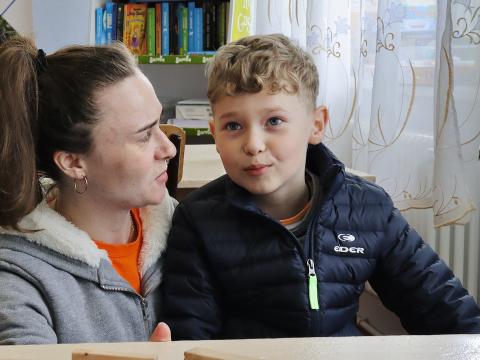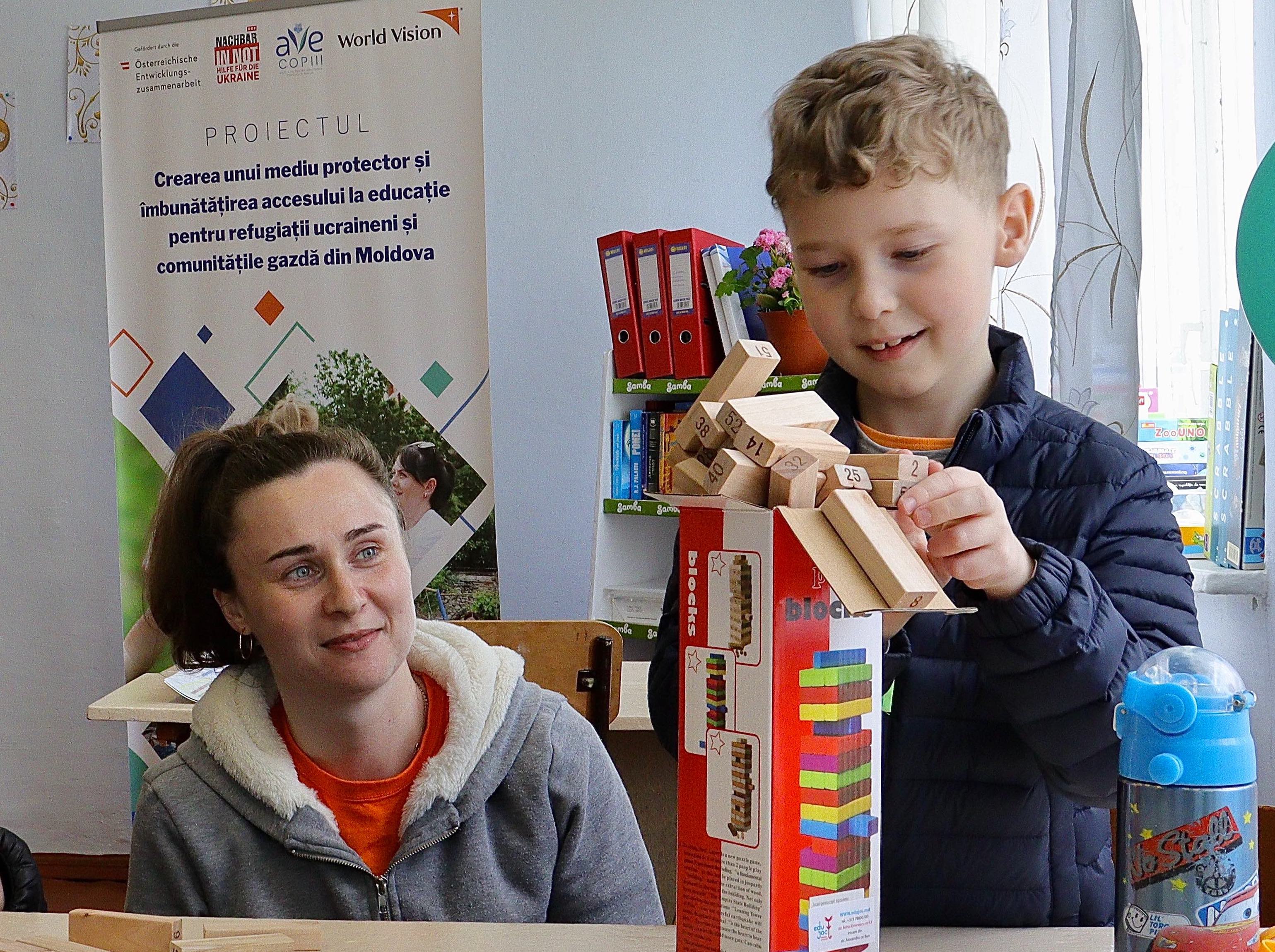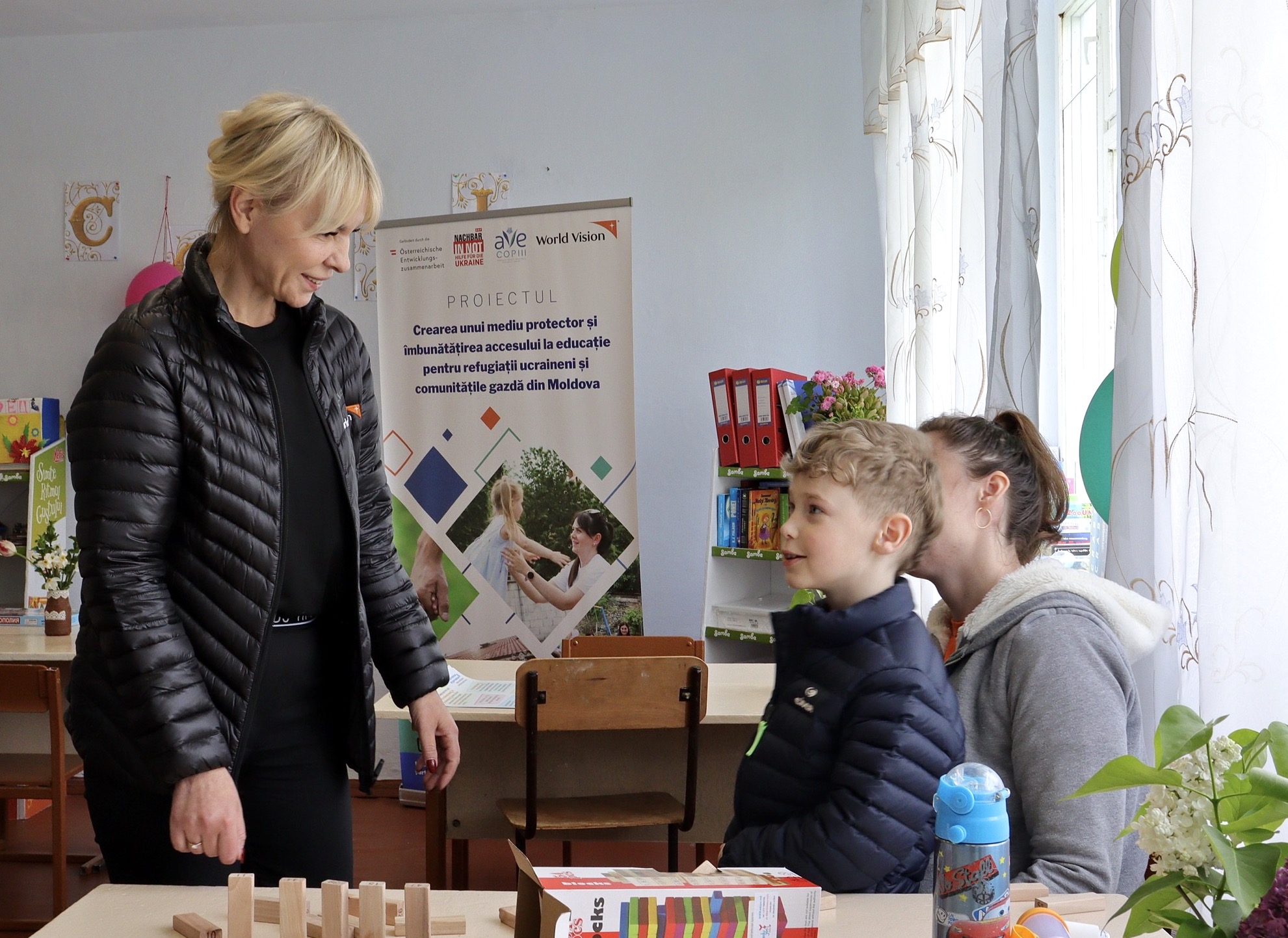From Ukraine to Moldova: A Ukrainian boy's journey towards growth and learning

“I could not believe war had started. I wished it was a night dream, but it was our new reality,” recalls Natalia.
It was February 24, 2022, 5 a.m., Natalia’s son, six-year-old Vladimir, was jolted awake by a whistling sound he has never heard before. Without warning, a distant rumble echoes through the air rapidly increasing in intensity.
The first item she stuffed into the suitcase was her son’s inhaler. Vladimir has asthma, a chronic lung disease characterized by inflammation and muscular constriction around the airways that makes it difficult for him to breathe.
She arrived at the crowded train station. Groups of men waved impatiently at their wives and children, who were boarding the packed trains that head in one direction – the west.
Ringing the first school bell in Moldova
In that cold February day, Natalia and her son settled safely in neighboring Moldova. Six months later, Vladimir was already enrolled in the first grade at a public school in Ștefan Vodă, a city two hours away drive from Chișinău.
“Witnessing my son’s progress during his first year at school has been amazing. We never imagined he would start his first year of school in Moldova,” shares Natalia.

She adds, “Vladimir enthusiastically embraced his school, from ringing the first school bell to meeting his first teacher and building friendships with his Moldovan classmates.”
His health, on the other hand, have deteriorated. Medical appointments became increasingly frequent.
“Managing his condition has been a daily battle for me as a mother, especially in a foreign country. We now go to the doctor every month, and get blood tests done,” explains Natalia.
Through his educator’s continuous assistance, seven-year-old Vladimir, was able to stay on schedule and catch up on the curriculum.
Positive changes
As soon as he finishes classes, Vladimir unwinds in the child-friendly space (CFS) located close to his school. The space is supported by AVE Copiii, World Vision’s local partner, and sponsored by Nachbar in Not (NiN) and the Austrian Development Cooperation (ADC).
In the bright room, he picks up his favorite game, Jenga, and diligently sets up the wood pieces. One by one, he meticulously selects a wooden block from the tower, mindful not to disrupt the perfect balance.
He grips the piece with his small fingers. With a quick, yet precise movement, he extracts the block. The child’s face brightens up with a mix of delight and anticipation, knowing that every move has consequences.
“In such a setting, he not only grows cognitively and emotionally, but also astounds me with his newly discovered interests,” shares Natalia. She vividly recalls how her son made a handmade Easter bunny and brought it home to give her as a gift.
“It melted my heart,” she says.
When the family arrived in Moldova, Vladimir’s paintings and conversations were almost entirely around tanks, and battleships. According to Natalia, his artwork was filled with dark hues.

“After some months, the facilitator recently informed me that Vladimir had begun sketching flowers and the sun in bold and bright colors. Notably, his interests have shifted away from war-related topics,” explains the mother.
This positive change is visible in his relationship with his classmates. He has developed friendships and actively engages in games and psychosocial activities in the CFS. “Outdoor games are my favorite,” says Vladimir.
A learning inspiration
“To inspire creativity and learning, we provide colorful play areas with interactive games and educational activities,” shares Lilia Damaschin Rughina, World Vision’s Project Manager.
She adds, “The board games encourage self-expression, innovation, and problem-solving abilities, helping children to channel their emotions and build important coping skills.”
To date, World Vision in Moldova has reached more than 162,000 people, including Ukrainian refugees and hosting families, through programs in education, mental health psychosocial support (MHPSS), protection, multi-purpose cash, food security, non-food items (NFI), and health.
This was possible through the support of eight local partners: Communitas, Step by Step, Food Bank, HelpAge, Ave Copiii, WeWorld, CRIC and Keystone.
Story and photos by Laurentia Jora, Communications Officer